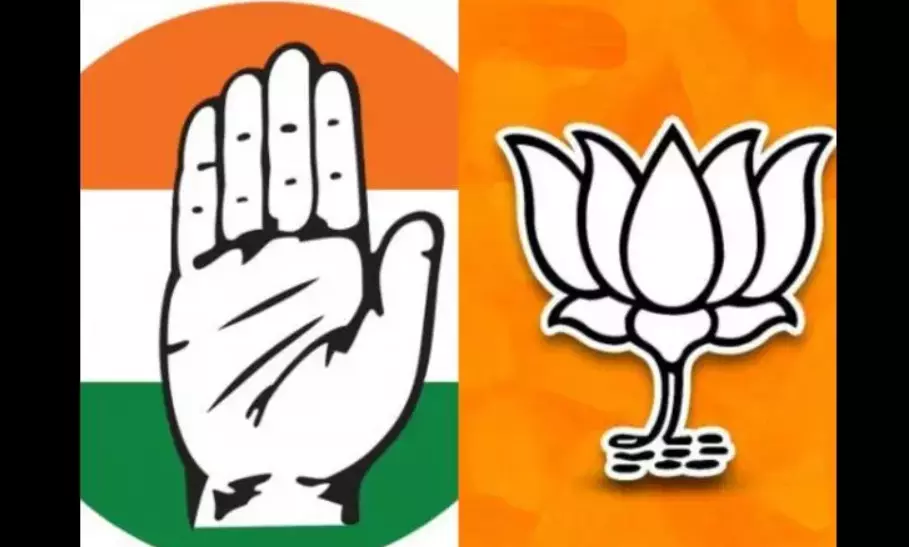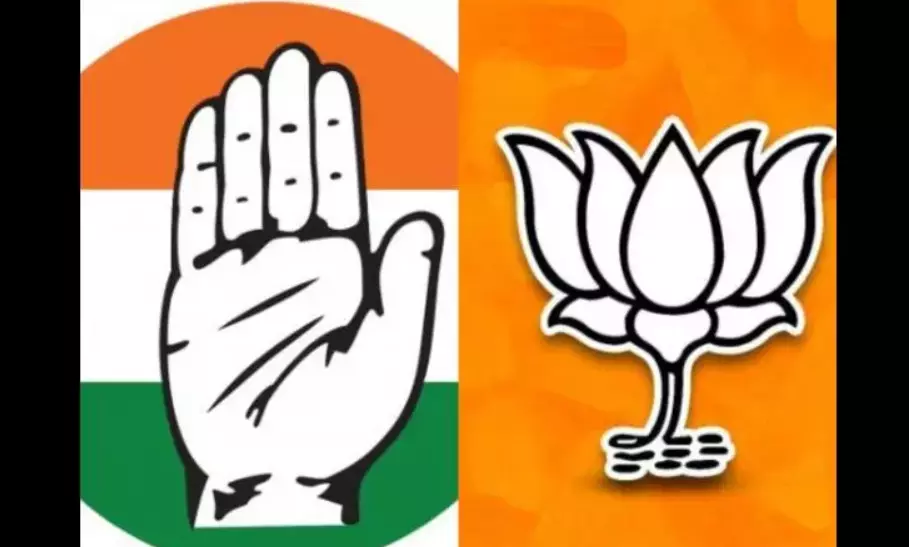
When former chief minister of Jammu and Kashmir Ghulam Nabi Azad walked out of the Congress in a huff and floated his own party, the Democratic Progressive Azad Party, it was an open secret that he had the blessings of the Bharatiya Janata Party which hoped that his seniority, experience and political standing would help marginalise the Congress in the state. As it happens, Azad’s attempts to wean away Congress workers from its J&K unit soon hit a roadblock and those who had initially switched sides returned to the “mother party” shortly thereafter. More recently, Azad’s DPAP came a cropper in the Lok Sabha elections as the three candidates fielded by it lost their deposits. According to the local grapevine, the BJP is gradually withdrawing its patronage to Azad as it has realised that it had clearly overestimated the former chief minister’s influence as a leading light of Jammu and Kashmir. The BJP is now banking on smaller parties and others like Rashid Engineer to play spoiler in the upcoming elections, especially in the Kashmir Valley. It is, therefore, not surprising that Azad abruptly announced that he would not be campaigning in the forthcoming Assembly polls due to health reasons. It is also not surprising that there is talk that Azad has been sending feelers to the Congress about his possible return but Rahul Gandhi is learnt to have said no.
The infighting in the Haryana unit of the Congress refuses to die down. With little over a month to go for a crucial Assembly poll, the battle between former chief minister Bhupinder Hooda and his chief detractors, Kumari Selja and Randeep Surjewala, has further intensified. While the two camps are currently holding parallel rallies to demonstrate their strength on the ground, the fight has now extended to the next generation. Mr Surjewala, currently a Rajya Sabha member, is pushing for a ticket for his son and wants that he should figure prominently in the Congress Party’s publicity campaign being designed by poll strategist Sunil Kanugolu. Bhupinder Hooda, on the other hand, wants the campaign to focus solely on his son Deepender Hooda, who recently won the Rohtak Lok Sabha seat. It is no secret that Hooda Senior is focused solely on promoting his son, who is being groomed as his political heir. It was the same story during the last Lok Sabha election when Hooda expended all his time and energy in promoting Deepender.
There is no running away from the fact that West Bengal chief minister and Trinamul Congress chief Mamata Banerjee is facing her toughest challenge over her government’s handling of the rape and murder of a junior doctor at Kolkata’s RG Medical College and Hospital. While her political rivals have predictably launched an offensive against her, Mamata Banerjee’s own party leaders are equally unhappy over the chief minister’s response to this horrific incident. On her part, Mamata is said to be upset that barring a few exceptions like Mohua Moitra, most women MPs and legislators have not spoken out in her defence. She is said to have issued a whip to all panchayat members, municipal councillors, MLAs and MPs and party officials to get active on social media to counter what is being described as the Bharatiya Janata Party’s “negative and fake news machinery”. Though they have no choice but to follow the chief minister’s diktat, many senior Trinamul leaders, including Sukhendu Sekhar Ray, are still fuming over the government’s initial attempts at a cover-up, obviously aimed at protecting some insiders and the college principal. Instead, they said, the situation demanded that a healing touch be provided to the striking junior doctors which was missing.
The BJP-led National Democratic Alliance has got a majority in the Upper House for the first time since it came to power in 2014 following the completion of the latest round of elections. But the development failed to lend itself to any celebration. Party insiders bemoaned that there was little to rejoice over its Rajya Sabha tally at a time when it had failed to get the numbers in the Lok Sabha and was forced to seek the help of allies to form the government. A senior leader pointed out that one saving grace was that they had essentially to deal with two numerically strong partners in the Lok Sabha. In contrast, the BJP’s allies in the Rajya Sabha include several two-three-member parties. “We have to go to them with folded hands each time there’s a vote in the House,” said a senior BJP leader.
If BJP leaders are feeling sufficiently emboldened to air their grievances publicly after the last Lok Sabha elections, bureaucrats are also in a more comfortable space. Officers disclosed that their colleagues do not hesitate to criticise the government or poke fun at it, especially in their various WhatsApp groups. They no longer have to watch over their shoulder as the element of fear has reduced. Officers are no longer scared to say no. Undoubtedly, there are a substantial number of bureaucrats who are ideologically aligned with the party in power but the divide between the two “groups” has become sharper, even extending to their social circles.
